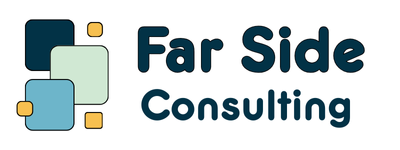When you think about your ABA therapy website, consider how targeted keywords can open doors to potential clients searching for the specific support you offer. By strategically using phrases that resonate with your audience, you not only improve your site's visibility but also build a connection that addresses their unique needs. This isn't just about attracting clicks; it's about fostering trust and credibility in a competitive landscape. So, what techniques can you employ to guarantee your keywords are hitting the mark and turning browsers into clients?
Key Takeaways
- Targeted keywords enhance visibility, connecting ABA therapy services with clients actively seeking assistance.
- Incorporating specific phrases boosts search rankings, signaling trustworthiness to potential clients.
- Regular keyword updates ensure the website remains relevant and competitive in a dynamic online landscape.
- Understanding audience needs through keyword research fosters trust and facilitates lasting client relationships.
- Effective keyword strategy can significantly improve client acquisition and overall practice growth.
Importance of Targeted Keywords
When it comes to optimizing your ABA therapy website, understanding the importance of targeted keywords can't be overstated. These keywords are the bridge between your services and those seeking help. By incorporating specific phrases that potential clients are searching for, you can greatly enhance your website's visibility in search engine results.
Imagine someone searching for "ABA therapy for children with autism." If your site features this exact phrase, you're more likely to appear at the top of their results. This means more traffic, and ultimately, more clients.
It's vital to think like your audience and anticipate their needs. Using targeted keywords not only directs traffic but also establishes your authority in the field. When your website ranks higher, it signals to users that you're a trusted source.
Moreover, targeted keywords improve your site's relevance. Search engines prioritize websites that align closely with user queries. By regularly updating your content with these keywords, you're not just optimizing for today; you're future-proofing your online presence.
Investing time in keyword research can yield considerable returns, ensuring those who need your services can easily find you. So don't underestimate their power—targeted keywords are your key to accessing success.
Understanding Your Audience
Understanding your audience is like holding a compass that guides your ABA therapy practice towards success. When you truly grasp who your clients are, you can tailor your services, messaging, and marketing efforts to meet their specific needs. This understanding helps you build trust and foster lasting relationships, which are essential in this field.
Think about it—parents searching for ABA therapy want to feel confident that you understand their challenges and can provide solutions. By recognizing their concerns, you can create content that resonates with them, addressing their questions and fears directly. It's not just about presenting information; it's about connecting on a deeper level.
Moreover, understanding your audience allows you to position your practice effectively. Are your clients mainly parents of children with autism? Or do you also cater to schools and organizations? Knowing this helps you craft targeted keywords that draw the right people to your website, ensuring that your services are visible to those who need them most.
In the end, when you know your audience, you're not just marketing; you're building a community around your ABA therapy practice, fostering growth and success for everyone involved.
Keyword Research Techniques
Effective keyword research techniques are essential for optimizing your ABA therapy website and attracting the right audience. Start by brainstorming terms that potential clients might use when searching for services. Think about their concerns, needs, and the questions they frequently ask. This initial list will lay a solid foundation.
Next, leverage keyword research tools like Google Keyword Planner, Ubersuggest, or SEMrush. These tools can help you discover search volume data, competition levels, and related keywords. Focus on long-tail keywords, as they often have lower competition and can lead to higher conversion rates. For example, instead of just "ABA therapy," try "ABA therapy for children with autism" for more targeted traffic.
Don't overlook local SEO; including your city or region in your keywords can greatly enhance visibility. Additionally, analyze your website's analytics to identify which keywords are currently driving traffic and refine your strategy accordingly.
Competitor Analysis
A thorough competitor analysis can greatly enhance your ABA therapy website's performance and visibility. By examining what your competitors are doing, you can identify their strengths and weaknesses, providing you with invaluable insights to refine your own strategy.
Start by researching their targeted keywords—what phrases are they ranking for, and how do those keywords align with your services?
Next, take a close look at their website design, content, and user experience. Are they offering valuable resources like blog posts, case studies, or guides that engage visitors? Understanding how they present their services can help you create a more compelling user experience that resonates with your audience.
Don't forget to analyze their backlink profiles. High-quality backlinks can considerably boost search engine rankings, so identify where their links are coming from and consider similar outreach opportunities for your site.
Lastly, monitor their social media presence. What platforms are they using, and how are they engaging with their audience? This analysis won't only help you stay competitive but also spark ideas for your own content and outreach strategies.
Embrace competitor analysis as a tool—your ABA therapy website will benefit immensely.
On-Page SEO Optimization
Optimizing your ABA therapy website for on-page SEO is essential for improving visibility and attracting the right audience.
By focusing on key elements, you can enhance your site's effectiveness and reach. Here are three critical strategies to implement:
- Keyword Placement: Make sure to include targeted keywords in important areas like your titles, headers, and throughout your content. This helps search engines understand your focus.
- Meta Descriptions: Craft compelling meta descriptions that summarize your content and entice clicks. This is your chance to communicate directly with potential clients in search results.
- Internal Linking: Use internal links to guide visitors through your site. This not only improves navigation but also helps search engines crawl your pages more effectively.
Measuring Keyword Success
To truly gauge the success of your targeted keywords, you need to explore analytics tools that reveal how users interact with your site. Google Analytics is a powerful starting point; it provides data on organic search traffic, allowing you to see which keywords are driving visitors to your ABA therapy website.
Pay attention to metrics like click-through rates (CTR) and average session duration. A high CTR indicates your keywords are relevant to searchers, while longer sessions suggest visitors find your content engaging.
Don't just stop at traffic numbers. Look at conversion rates too. Are users contacting you for services or filling out forms after landing on your site? This tells you if your keywords aren't only attracting traffic but also converting it into actionable leads.
Additionally, leverage tools like SEMrush or Ahrefs to track your keyword rankings over time. If you notice a drop, it's time to reevaluate your strategy.
Conclusion
In today's digital landscape, using targeted keywords for your ABA therapy website isn't just a nice-to-have; it's a must. By understanding your audience and optimizing your content, you'll attract the right clients and build lasting connections. Remember, it's not just about ranking high in search results; it's about meeting the unique needs of those seeking support. So, get your keyword game on point, and watch your practice thrive like a rocket in the sky!

